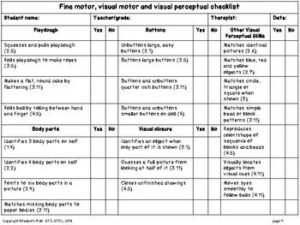So, you’re thinking about becoming an occupational therapist, huh? Well, you’re in luck because today we’re going to dive into the world of occupational therapy and answer the burning question on everyone’s mind: how long does it actually take to become an occupational therapist? Whether you’re eager to start your career or just curious about the time commitment, we’re here to give you the lowdown on the path to becoming an occupational therapist.

Education Requirements
To become an occupational therapist, you will need to complete a Bachelor’s Degree and a Master’s Degree in Occupational Therapy. These degrees provide the necessary foundation of knowledge and skills required for a career in this field. Let’s take a closer look at the requirements for each degree.
Bachelor’s Degree
The first step towards becoming an occupational therapist is obtaining a Bachelor’s Degree. The duration of a Bachelor’s program typically ranges from 3 to 4 years. During this time, you will study a combination of general education courses and specific coursework related to occupational therapy.
Duration
A Bachelor’s Degree in Occupational Therapy usually takes around 4 years to complete. However, the duration may vary depending on the educational institution and the specific program requirements. Some universities may offer accelerated programs that allow you to complete your degree in a shorter timeframe.
Coursework
The coursework for a Bachelor’s Degree in Occupational Therapy covers a wide range of subjects, including anatomy, physiology, psychology, kinesiology, and therapeutic techniques. You will learn about the human body and its functions, as well as the various conditions and disabilities that occupational therapists work with. The curriculum also includes classes on assessment and intervention strategies, as well as fieldwork experiences.
Fieldwork Experience
Fieldwork experiences are an integral part of a Bachelor’s Degree in Occupational Therapy. These experiences provide students with hands-on training and an opportunity to apply the knowledge and skills they have learned in a real-world setting. Under the guidance of experienced occupational therapists, you will have the chance to work with patients and gain practical experience in different clinical settings.
Master’s Degree
After completing a Bachelor’s Degree, you will need to pursue a Master’s Degree in Occupational Therapy. This advanced degree further enhances your knowledge and skills in the field and is necessary for obtaining licensure as an occupational therapist.
Duration
A Master’s Degree in Occupational Therapy typically takes around 2 years to complete. However, like the Bachelor’s Degree, the duration may vary depending on the program and institution. Some universities offer accelerated programs that allow students to complete their Master’s Degree in a shorter timeframe.
Coursework
The coursework for a Master’s Degree in Occupational Therapy builds upon the foundation laid during the Bachelor’s program. You will delve deeper into subjects such as research methods, evidence-based practice, and advanced therapeutic techniques. The curriculum may also include specialized courses focusing on specific populations or areas of practice, such as pediatrics, mental health, or geriatrics.
Fieldwork Experience
Similar to the Bachelor’s program, the Master’s program also includes fieldwork experiences. These experiences provide you with the opportunity to further refine your skills and gain expertise in specific practice areas. Working under the supervision of experienced occupational therapists, you will have the chance to develop advanced clinical reasoning and intervention skills.
Research or Thesis
As part of the Master’s program, some universities require students to complete a research project or thesis. This allows you to contribute to the existing body of knowledge in the field of occupational therapy. Through research, you can gain a deeper understanding of a specific topic or area of practice and contribute to evidence-based practice.
Licensing and Certification
In addition to completing the required education, occupational therapists must obtain specific licenses and certifications to practice legally in the United States.
National Board for Certification in Occupational Therapy (NBCOT)
One important certification for occupational therapists is the NBCOT certification. After completing your Master’s Degree, you will need to pass the Occupational Therapist Registered (OTR) examination administered by the NBCOT. This computer-based exam assesses your knowledge and skills in the field of occupational therapy and ensures that you meet the standards set by the profession.
Jurisprudence Exam
Some states also require occupational therapy practitioners to take a jurisprudence exam. This exam focuses on the laws and regulations governing the practice of occupational therapy in a particular state. Its purpose is to ensure that therapists are aware of and adhere to the legal and ethical guidelines specific to their state.
State Licensure
In addition to the NBCOT certification, you will need to obtain a license from the state in which you plan to practice. Each state has its own licensing requirements, so it is important to familiarize yourself with the specific regulations of the state you wish to work in. State licensure typically involves submitting an application, providing documentation of your education and certification, and paying a fee.

NBCOT Exam
Once you have completed your Master’s Degree and obtained the necessary educational credentials, you will be eligible to take the NBCOT exam.
Exam Format
The NBCOT exam is a computer-based exam consisting of multiple-choice questions. The exam is designed to assess your knowledge and skills across the domains of occupational therapy practice. It covers a wide range of topics, including evaluation and assessment, intervention planning, and professional standards and ethics.
Preparation
Preparation for the NBCOT exam is crucial to ensure success. Many occupational therapy programs provide specific courses or resources to help students prepare for this exam. Additionally, there are various study guides, online resources, and practice exams available to assist you in your preparation. It is important to review and understand the key concepts and principles in each area of practice covered by the exam.
Passing Score
To become a certified occupational therapist, you must achieve a passing score on the NBCOT exam. The passing score is determined by the NBCOT and may vary from year to year. It is important to check the current passing score requirements before taking the exam to ensure you meet the necessary criteria.
Jurisprudence Exam
A jurisprudence exam is an additional requirement in some states for occupational therapy practitioners.
Exam Purpose
The purpose of the jurisprudence exam is to ensure that occupational therapists are knowledgeable about the laws and regulations governing the practice of occupational therapy within a specific state. This exam assesses your understanding of the legal and ethical guidelines that you must adhere to while practicing.
Content
The content of the jurisprudence exam may vary depending on the state. It typically covers topics such as state-specific laws and regulations, scope of practice, supervision requirements, and professional conduct. It is essential to review the relevant state laws and regulations to prepare for this exam.
Passing Score
The passing score for the jurisprudence exam is determined by each individual state. It is important to consult the specific requirements of the state you plan to practice in to ensure you meet the passing score criteria.

State Licensure
Obtaining state licensure is the final step to becoming a licensed occupational therapist.
Application Process
To apply for state licensure, you will need to complete an application provided by the state licensing board. The application typically requires information about your educational background, certification, and any other relevant documentation. It is important to fill out the application accurately and provide all necessary supporting documents.
Documentation
The documentation required for state licensure may vary from state to state. Commonly required documents include transcripts from your educational institutions, proof of completion of the NBCOT exam, proof of completion of fieldwork experiences, and any other certifications or special training you have received. It is essential to review the specific requirements of your state to ensure you provide the correct documentation.
Fees
There are usually fees associated with applying for state licensure. These fees cover the processing of your application and the administration of the licensure process. The fee amount may vary depending on the state. It is important to budget for these fees and include them in your financial planning.
Specialization and Advanced Training
Once you have obtained your occupational therapy license, there are opportunities for specialization and advanced training within the field.
Continuing Education
Continuing education is an important component of professional development for occupational therapists. It allows you to stay updated on the latest research, advancements, and best practices in the field. Many occupational therapy organizations offer continuing education courses, conferences, and workshops that address specialized topics or emerging areas of practice.
Residency Programs
Residency programs provide highly specialized training and mentorship opportunities for occupational therapists. These programs typically last for a specific duration, during which you work under the guidance of experienced therapists in a specific practice area. Residency programs can enhance your clinical skills, expand your knowledge, and improve your confidence in a specialized area of practice.
Advanced Certifications
Obtaining advanced certifications can demonstrate your expertise in a specific area of occupational therapy. There are various certifications available, such as Certified Hand Therapist (CHT), Certified Lymphedema Therapist (CLT), and Certified Aging-in-Place Specialist (CAPS). These certifications require additional training and may involve passing a specialized exam.
Career Advancement
As you gain experience and expertise in the field of occupational therapy, there are opportunities for career advancement.
Experience and Expertise
Experience plays a crucial role in career advancement as an occupational therapist. As you gain more clinical experience, you will become more proficient in assessing and treating patients, and your ability to develop individualized treatment plans will improve. This expertise can open doors to leadership positions or specialized roles within a healthcare organization.
Leadership Roles
Occupational therapists with a strong clinical and leadership background may be eligible for leadership roles within healthcare organizations. These roles may involve managing a team of therapists, overseeing program development, or contributing to policy and decision-making processes. Leadership positions allow you to shape the direction of occupational therapy practice and make a broader impact on patient care.
Higher Education
For those interested in research, academia, or advanced clinical practice, pursuing higher education may be an option. A doctoral degree, such as a Doctor of Occupational Therapy (OTD) or a Ph.D. in Occupational Therapy, can open doors to teaching positions in colleges or universities, research positions, or advanced clinical practice roles. Higher education can provide opportunities for specialized research, advanced study, and the development of innovative approaches to occupational therapy practice.
Conclusion
Becoming an occupational therapist requires dedication, hard work, and a commitment to lifelong learning. The total duration of the education and licensure process can vary depending on individual factors, but typically involves completing a Bachelor’s Degree (around 4 years), a Master’s Degree (around 2 years), obtaining certifications, and obtaining state licensure. Specialization and advanced training opportunities can further enhance your skills and open doors to career advancement. By completing the necessary education and licensure requirements, you will be well-prepared to make a meaningful impact in the lives of your clients and contribute to the field of occupational therapy.


